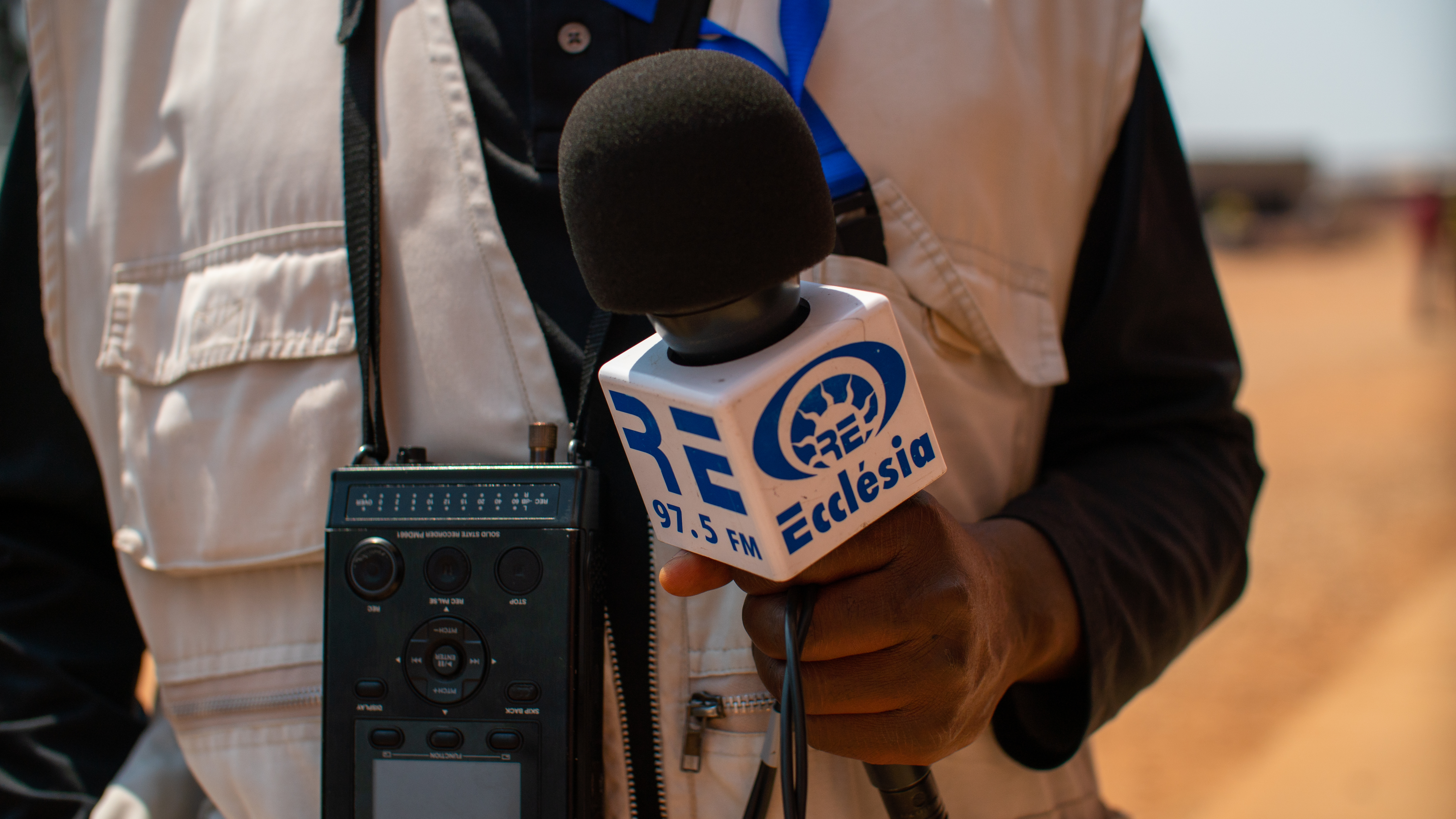Mozambique
The role of journalism in Mozambique's electoral landscape

Close-up of a radio journalist's equipment during an interview
© ShutterstockThe issues we discuss often stem from people, circumstances, and events. Today, a critical concern facing our nation is the upcoming elections. While we excel in many areas such as corruption and inequality, we also confront challenges like violence. A minority thrives while the majority struggles to meet basic needs. Over the years, we've endured wars for independence, civil conflicts, and ongoing battles, particularly in central Mozambique. These conflicts often coincide with electoral cycles, resulting not only in military engagements but also in kidnappings and restrictions on free speech.
Just last week, the leader of MDM in Portugal (The Movimento Democrático de Mulheres) warned of potential post-election unrest. Vanassi Mondiane echoed these concerns, cautioning that Mozambique could witness demonstrations similar to those seen in Kenya if the electoral process is compromised. This looming threat of violence casts a shadow over our aspirations for peace. What we urgently need is a transparent electoral process akin to South Africa's—one free of conflict and respected by all. However, recent elections have been marred by issues and violence. Violence here is not just physical; it includes the suppression of truth and the voice of the electorate. Without sincere post-election reviews and reforms, we risk perpetuating cycles of violence and discontent. This could exacerbate ongoing conflicts in Cabo Delgado and intensify the daily struggles faced by many, undermining the very core of our democracy.
As a philosopher, I reflect on the role of philosophy in these critical times. Allow me to highlight two significant points. Recently, the BBC conducted a poll on the most influential philosopher in history, yielding surprising results. Karl Marx emerged as the unexpected winner, followed by David Hume, Nietzsche, Heidegger, and Plato. Despite ranking seventh, Plato remains profoundly relevant today, particularly in discussions on human rights, freedom of information, and conflict resolution. Plato advocated for a societal emphasis on truth through dialogue, justice, and intellectual rigor, rejecting the ancient Greek focus on strength and violence (paideia). This philosophical foundation remains pertinent in our modern context.
Another concept worthy of exploration is hermeneutics—the art of interpretation. Derived from Hermes, the Greek messenger of the gods who bridged the divine and human worlds through language, hermeneutics finds resonance in journalism. Journalists act as modern-day interpreters, translating complex societal issues for public consumption. In large societies, representative democracy necessitates this interpretive role, as citizens rely on journalists to convey legislative intricacies and public concerns to decision-makers. Journalists facilitate democratic discourse, ensuring governance remains transparent and accessible.
A journalist's duty extends beyond mere interpretation; it encompasses fidelity to truth—aletheia. They do not merely convey opinions (doxa) but serve as guardians of truth in a democratic society. This pursuit of truth aligns with Plato's ideals of justice and transparency in governance. Journalists thus embody the fourth estate, acting as a crucial link between governance and the governed. Their role in fostering informed debate and upholding transparency is indispensable for a cohesive society. However, journalism faces formidable challenges, particularly external pressures that distort truth for political or economic gain. In countries like ours, media ownership influences editorial independence, shaping public perception and compromising journalistic integrity.
The monopolisation of media by powerful interests impedes democratic transparency, undermining journalism's role as a watchdog. Investigative journalism emerges as a critical response, risking much to uncover truths concealed by vested interests. In conclusion, the role of journalism in safeguarding democracy cannot be overstated. As Mozambique approaches pivotal elections, the need for responsible journalism becomes ever more critical in guiding informed public discourse and ensuring electoral integrity. Upholding truth amidst external pressures is essential for fostering a democratic society where governance is accountable and citizens are empowered.
This speech was delivered by Professor Severino Elias Ngoenha, a Mozambican philosopher specialising in Political Philosophy, at the opening of the "Protection of Journalistic Freedom and the Media" seminar in Maputo. The week-long workshop, held from 8th to 12th July, was organised by Fondation René Cassin and supported by the Friedrich Naumann Foundation for Freedom.
